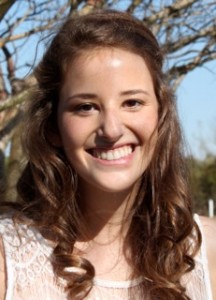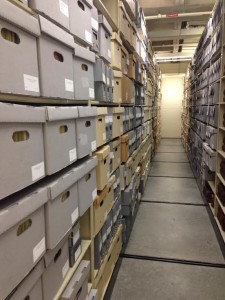By: Shelby Gatewood, first-year undergraduate at The University of Alabama
Editor’s Note: This post is the last of a six-part series highlighting innovative special collections pedagogy.
Read an interview with Sarah Smiley’s instructor, Brooke Champagne and review the assignment. Then learn about Mary Dees, Jean Harlow’s stand-in. Sarah Smiley shares her research process to help fellow students understand the fun as well as the challenge of working in the archive. The fifth post of the series is Shelby Gatewood’s essay, “The Neglected History of Bryce Hospital,” the chosen paper from the second section of Champagne’s course. The following interview with Gatewood concludes our inaugural Special Collections Pedagogy Series.
Please feel free to post questions and/or continue the discussion in the comments section of these posts.
***
Congratulations on having your work chosen to be featured on Cool@Hoole! To start with, can you summarize your paper topic?
My research paper describes some important phases in Bryce Hospital’s history. In the paper I focused on three specific moments: a patient’s daily routine in 1872, the lawsuit Wyatt v. Stickney in 1970, and the decision to sell Bryce to the University of Alabama in 2009. I wanted to use the history of Bryce Hospital to bring attention to the importance of the mental health field. Most of my research came from the Bryce Hospital Collection in Hoole Library.
Had you heard of or visited a special collections repository before you came to the W.S. Hoole Library?
Before I was presented with the research assignment, I had never heard of a special collections repository, and I did not know that we had one on campus.
What was your first impression of Hoole?
I was very intimidated because I could only bring a pencil and paper into the reading room, but I was also very excited to see the different types of primary documents.
How did you conduct your research for this paper?
After choosing my topic, I went to Hoole Library for the first time to begin to understand this process of research. During this visit, I just looked through one box in the Bryce Hospital Collection, and I didn’t take any notes. However, I visited Hoole multiple times after this first visit, and during these visits I took notes on the newspapers, books, and papers that were written in the 19th century as well as the time of the trial in 1970. After looking through all of the information in the Bryce Hospital Collection, I gathered more information from the online databases. While most of the information in my paper came from the collection in Hoole, I used information that I acquired from the databases to fill in the holes of my paper.
How was this type of research assignment different from the kinds of research you’ve done before?
As a student, I have only performed research for lab reports in biology. I was familiar with the online databases from the research for these reports, but I had never used them extensively. With this research paper I learned to navigate the databases more efficiently, and I also became more familiar with other library websites. I had also never even heard of the special collections, but with this assignment I visited Hoole Library and used the Bryce Hospital documents many times. This research paper was also different because I had to spend weeks gathering information for this paper rather than simply a few hours or days.
The process for this research paper required more effort than any paper that I have written, and I had to adapt my writing process. Usually I think of the focus for my paper, gather all of the information in one sitting, and write the entire paper at one time. However, for this research paper I had to make many visits to Hoole before I even able to choose a focus for my paper. I was also writing sections of my paper for about two weeks rather than writing it all in one day. The many trips that I made to Hoole Library changed my writing process, but they also helped improve my paper.
What challenges did you face while doing your research?
One of the main challenges that I encountered was not being able to read some of the handwritten documents. Some of the handwriting was faded due to age, but some of the handwriting was simply hard to decipher. I was also limited in the number of newspaper editions that I could use from Hoole because some of the editions that I needed were not in the collection. These were the only minor challenges that I faced when visiting Hoole.
What did you most enjoy about your research at Hoole?
My favorite part of visiting Hoole Library was the tangible experience of holding the primary documents. Most of the research that I conducted came from the 19th century, and I was in awe that I was holding newspapers and books that others held about 150 years ago.
What would you tell other undergraduate students faced with a similar assignment? What advice would you give them?
I would advise students not to be intimidated when receiving a similar assignment. The project could seem overwhelming at first, but it is manageable if you start researching early. Waiting until the last minute to begin researching is not a very effective method for this type of assignment. Also students should not be intimidated when visiting Hoole Library because the librarians want to help.
Would you want to take another class that requires working in the archive in the future?
Even though working in the archive required more time and effort to write my paper, I would take another class that required the use of the archive. Learning from these primary documents is such an exciting experience, and I learned so much more than just searching for information about the topic online.
Lastly, what’s your major and why did you pick this area to study?
I am majoring in biology, and I am considering minoring in psychology. I took Abnormal Psychology this past semester, and I became very interested in mental disorders. I have always been interested in the history of Bryce Hospital, and once I found the Bryce Hospital Collection in the archive, I knew that this would be my research topic.


